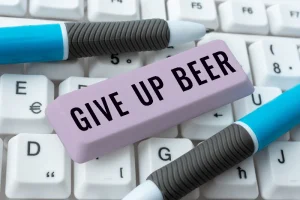
Take ten minutes to practice deep breathing, mindfulness, or meditation without any digital distractions. This time can significantly help clear your mind and reduce stress. If you haven’t meditated before, try starting with some guided options from the apps, but then move to doing it without technology support. Mindfulness can be employed anywhere at any time, so it’s a valuable skill in learning to destress.
- Never saying no is a recipe for both feeling and being overwhelmed “Don’t say yes to everything that crosses your desk,” Olson says.
- Spending a little time to determine the true importance of each task really can make your situation feel more manageable.
- Some people like to have a certain cup of tea or light a specific candle.
- Also, consider joining a sports team, a book club or volunteering at a local organization — finding ways to foster social connections can help manage your stress levels and improve your mental health.
- While keeping feelings bottled up isn’t an optimal answer, when we spend what could be quality time with loved ones focused on all the stresses of the day, we lose more of our day to job stress.
- Even though the symptoms must be linked to a traumatic event, this linking does not imply causality or etiology.
The benefits of relaxation techniques
We streamline your business functions and processes so you get back to the business of your business. Instead of checking your phone every five minutes, you’ll be able to relax. Take a few minutes after work for some slow, deep breathing to decrease your tension. Focus on your stress while inhaling for four seconds, then let it all go while exhaling for 6 seconds. You don’t even have to go to the gym to get the benefits – you can take a short 10-minute walk around the block. Find simple ways to relax and get started on de-stressing your life what is alcoholism and improving your health and overall well-being.
The Importance of Unwinding After a Long Day: How to Truly Relax and Recharge

Spending time with your best friend will help reduce your stress. If you can’t physically go see them, call them and chat for a few minutes. Whether your stress is out of control or you’ve already got it tamed, you can benefit from relaxation techniques. Relaxation techniques are often free or low cost and pose little risk. Stress can be a constant in your life, and knowing how to reduce stress and anxiety can be helpful. You can free up time by practicing time-management skills like asking for help when it’s appropriate, setting priorities, pacing yourself and reserving time to take care of yourself.
Limit screen time

Keep your journal app or meditation content accessible, allowing for a smooth transition from work to relax and unwind mode. Is more technology the answer to a problem partially caused by technology? Innovation has led to a series of tools that can help you separate work and personal life and achieve better balance. Try some of these tactics for decompressing after work and promoting relaxation. Most of us appreciate the feeling of turning off the “work” part of our brain and shifting into fun mode. However, there Ways to Destress After Work are actual scientific reasons for learning how to destress after work.

Considerable research has demonstrated that PTSD entails multiple emotions (e.g., guilt, shame, anger) outside of the fear/anxiety spectrum 13,14, thus providing evidence inconsistent with inclusion of PTSD with the anxiety disorders. In the DSM-5, PTSD was placed in a new diagnostic category named “Trauma and Stressor-related Disorders” indicating a common focus of the disorders in it as relating to adverse events. This diagnostic category is distinctive among psychiatric disorders in the requirement of exposure to a =https://ecosoberhouse.com/ stressful event as a precondition. Other disorders included in this diagnostic category are adjustment disorder, reactive attachment disorder, disinhibited social engagement disorder, and acute stress disorder. This is the only diagnostic category in the DSM-5 that is not grouped conceptually by the types of symptoms characteristic of the disorders in it.
- It can even cause you to pick fights with the people closest to you.
- Having people you can rely on during tough times can alleviate some of the built-up tension.
- Exercise releases endorphins, which act as natural stress-relievers.
- Meditation, deep breathing exercises, and mindfulness calm stress and anxiety.
